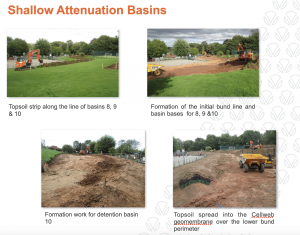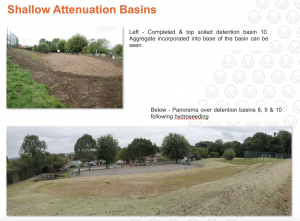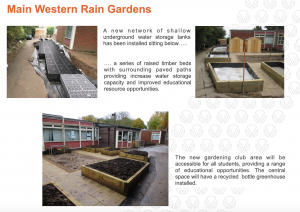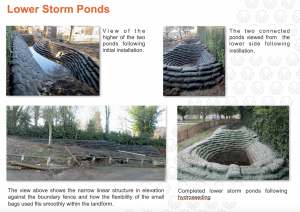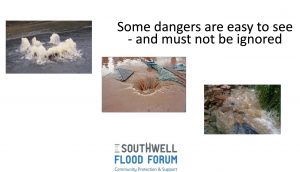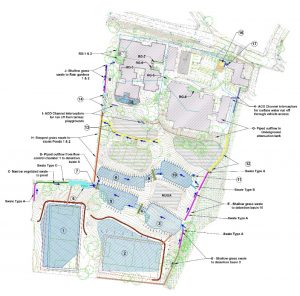Core members of the Southwell Flood Forum Holger Kessler, Rob Fisher and Jacky Huson had a great day with year 4 pupils and teachers at Lowes Wong School, Southwell on 4th March when we gave an afternoon’s session on flooding to each of the three classes.
The school grounds are at the highest point in Southwell so it is an ideal site in the ‘mini’ catchment for the north side of town for natural flood management. In was installed by Nottinghamshire County Council’s contractors VIA East Midlands a few years ago with a variety of SuDS features to Slow the Flow.
We were delighted to be invited by the school to follow on from their curriculum lessons in the Autumn term on the Nile flooding. Storm Babet happened about the same time so the pupils were interested to learn more about flooding in their local town.
Jacky talked through her experiences of being flooded and how the Southwell Flood Forum was set up to represent the community’s interests and collaborate with the risk management authorities to help determine the most effective interventions to reduce flood risk. Jacky also explained how the Forum has helped to build community resilience and changed how we now are more prepared and alert to our role in keeping Southwell safe when flood events happen.
Holger described the water cycle, catchments and walked round the school grounds to explain how the features helped to slow the flow and reduce the risk of flooding to the north area of Southwell.
Rob Fisher who has recently retired from his role in Nottinghamshire County Council as Emergency Planning Manager and now volunteers with the SFF gave the pupils a version of the Water safety presentation that is used to train Flood Wardens.
The teachers have already booked the sessions to be repeated every Autumn term with year 4 pupils.
Future flood resilient citizens or even Flood Risk Managers and Engineers in the making!!
Photos of the presentations, Slow the Flow design and work during construction
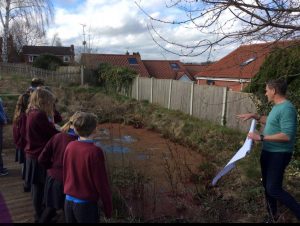
Holger Kessler explained the water cycle, how flooding happens and how the ‘Slow the Flow’ works on Lowes Wong School site works to help reduce flood risk ‘downstream’ on Kirklington Road, Ropewalk and Lower Kirklington Road.
